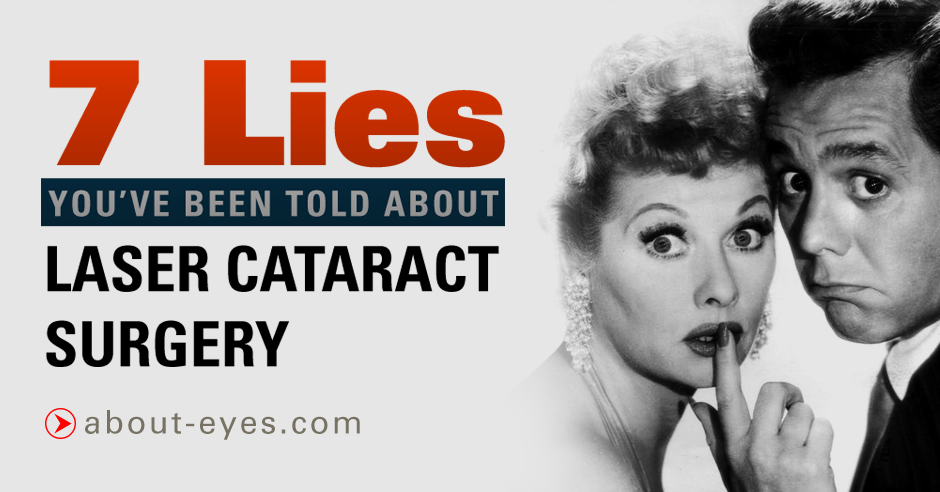
If you have cataracts and have been Googling cataract surgery options then you’ve seen advertisements for “laser cataract surgery.” It’s been touted as “safer”, “gentler”, and even “more precise”. Sounds pretty good. Why wouldn’t you want that?
Most everyone with cataracts is old enough to have gained some basic wisdom regarding advertising: “Don’t believe everything you’re told.” With regard to “laser cataract surgery” that wisdom could serve you quite well indeed.
Millions of dollars have been spent by the manufacturers of cataract surgery lasers to convince both doctors and their patients that “laser cataract surgery” is superior to cataract surgery performed without a laser. The industry has tried everything from intimate dinners at expensive restaurants to rock concert like presentations with laser light shows and loud music (I’m not kidding) to sway the views of eye doctors. Many have been impressed enough by these presentations to spend up to a half million dollars to purchase one of these laser units. Yes, that’s up to $500,000 just to purchase the laser. On top of that the laser companies charge another $300-800 each time the laser is used on a patient.
Think someone who has spent a half million dollars might be just a little incentivized to recommend laser cataract surgery to his or her patients? Think some might even bend the truth just a wee bit?
But,…doctors would not outright lie about laser cataract surgery, would they?
Well, let’s take a look at the definition of “lie” that can be found on Google:
- n. “used with reference to a situation involving deception or founded on a mistaken impression”
- v. ”(of a thing) present a false impression; be deceptive”1
“Founded on a mistaken impression”, “false impression”. I’m going to show you how the typical online statements about “laser cataract surgery” rely on “false impressions” to produce wildly incorrect beliefs based on what may be technically true statements.
Let’s take a look at just some of the many lies about “laser cataract surgery” that can be found with a quick Google search:
Lie #1: Implying that “laser cataract surgery” is primarily done with a laser
How it’s technically true:
During laser-assisted cataract surgery a Femtosecond laser is used to perform the initial steps of cataract surgery. These steps are creation of corneal incisions, capsulorrhexis, and “softening” of the cataract.
Why it’s really a lie:
Even when a laser is used, cataract surgery is still primarily done with an ultrasound handpiece. When lasers are used, they are in addition to (not in place of) the ultrasound. Thus, it is more accurate to use the term “Laser-Assisted Cataract Surgery” (but “Laser” sounds so much more enticing than “Laser-Assisted” so many ads drop “-Assisted”).
Lie #2: Laser-Assisted Cataract Surgery is “More Accurate”
Actual quote from cataract surgeon’s website: “offers a level of accuracy exceeding that of manual surgery methods”
How the above statement is technically true:
The term “accurate” can be defined as either “exact” or “capable of or successful in reaching the intended target”2. Ads and marketing websites that use this term with regard to laser-assisted cataract surgery are referring to the former definition (“exact”) but hoping that you will assume it means the latter (“capable of or successful in reaching the intended target”). It’s disingenuous but technically correct as laser-created incisions can be made to exacting specifications3. Whether this results in the “intended target” of better vision on the other hand…
Why it’s really a lie:
What’s not to like about “more accurate” surgery? The assumption that’s being played upon here is that “more accurate” surgery will result in better final vision. Isn’t that why you’re having cataract surgery in the first place? To date, however, there is no objective evidence4 that the more accurate cuts created by a laser result in better final vision. Indeed, at least one study comparing laser-assisted cataract surgery to ultrasound-only cataract surgery noted a slight advantage without use of the laser5.
Lie #3: Laser-Assisted Cataract Surgery is “More Predictable and Precise”
Actual quote from Femto laser manufacturer’s website: “laser-assisted cataract surgery procedures are generally more predictable and precise”
How the above statement is technically true:
Most people can draw a more perfect circle with the aid of a compass than they can by hand. In the same way, the Femto laser can create a more predictable and precise circular opening in the capsular bag during cataract surgery. The question is, “Does this matter?”
Why it’s really a lie:
- “Precise” used in the context of ads for laser-assisted cataract surgery simply means that the cuts made are more exact in their size, shape, and positioning. What is implied, however, is that the final outcome of surgery (improved vision) can be more precisely controlled by the creation of more exact cuts. There is no objective evidence to support that.
- “Predictable” is also referring to the ability to predict the size, shape, and location of the incisions. Here again, what is implied is that the final visual outcome is more predictable. After all, that’s what most patients care about. However, multiple studies have shown that there is no relationship between the size or shape of the capsular bag opening and final visual outcome6,7,8.
Lie #4: Laser-Assisted Cataract Surgery is “Gentler”
Actual quote from cataract surgeon’s website: Laser-assisted cataract surgery is a “kinder, gentler approach to the eye surgery”
How the above statement is technically true:
The statement that laser-assisted cataract surgery is somehow “kindler” and “gentler” is (1) an opinion, not a fact; and (2) is based on the assumption that somehow laser energy is a “gentler” type of energy than ultrasound energy.
Why it’s really a lie:
- In order to perform laser-assisted cataract surgery the eye must be “docked” with the laser device. During this process suction is applied to the eye which increases the eye’s pressure. Elevating the intraocular pressure (IOP) is seldom a good or “gentle” thing and may actually be dangerous for those with glaucoma. Many people end up with red, irritated, and bruised9 eyes. What’s “gentle” about that?
- Given the choice, would you rather be burned by an electric filament or gas flame? Neither? Well then, you have something in common with your eye in that there’s no objective evidence that the eye cares whether the energy used to remove the cataract is laser energy or ultrasound energy. The concept that laser energy is somehow “gentler” is nothing other than an unsupported opinion by those who offer laser-assisted cataract surgery.
Lie #5: Laser-Assisted Cataract Surgery allows for “Quicker Visual Recovery”
Actual quote from cataract surgeon’s website: “Your surgeon can also use the laser to break up and soften the hard cataract, enabling it to be removed more gently and with significantly less ultrasound energy than is used in traditional manual cataract surgery. Using less ultrasound energy may allow quicker visual recovery.”
How the above statement is technically true:
Significant amounts of ultrasound energy can cause corneal swelling. Corneal swelling is one of the main causes of delayed recovery of vision after cataract surgery. All else being equal (and using older techniques), less ultrasound energy generally results in less corneal swelling.
Why it’s really a lie:
- With modern “chopping” techniques so little ultrasound energy is used that minimal, if any, corneal swelling is present even one day after surgery. Thus, the visual recovery is already blisteringly fast with these modern ultrasound techniques. If, on the other hand, your surgeon is using an older ultrasound technique such as “divide and conquer” then perhaps the use of a Femto laser could result in “quicker visual recovery”. But why would you choose a surgeon who is still using such an old technique?
- A very large European study (the “FLACS ESCRS Study”) demonstrated that patients undergoing Femto laser-assisted cataract surgery (FLACS) were five times more likely to experience corneal swelling than those who had cataract surgery without use of the laser!
- Femto laser-assisted cataract surgery (FLACS) could actually increase the risk of worse final vision! The FLACS ESCRS Study also noted that almost three times as many patients who had FLACS had worse vision after surgery than those who underwent cataract surgery without the use of the laser!
Lie #6: Laser-Assisted Cataract Surgery may “Reduce Your Need for Glasses or Contact Lenses after Surgery”
Actual quote from cataract surgeon’s website: “may reduce your need for glasses or contact lenses after surgery”
How the above statement is technically true:
Yes, it’s true that Femto laser-assisted cataract surgery (FLACS) could actually reduce your need for glasses or contact lenses after surgery.
Why it’s really a lie:
So can cataract surgery without the use of a laser. It’s not the use of a laser that determines whether someone needs to wear spectacles or contact lenses. It’s the choice of intraocular lens (IOL). And, there is absolutely no need to use the Femto laser in order to have the option of implanting an IOL that reduces the need for spectacles or contact lenses.
Lie #7: Laser-Assisted Cataract Surgery is “Safer”
Actual quote from cataract surgeon’s website: Laser-assisted cataract surgery “adds safety”
How the above statement is technically true:
If your surgeon is inexperienced, uses an older “divide and conquer” ultrasound technique, has a tremor, or is “all thumbs” then, yes, Femto laser-assisted cataract surgery would likely be the safer method of cataract surgery.
Why it’s really a lie:
- There’s simply no objective evidence to suggest that use of the Femto laser during cataract surgery is less risky than ultrasound-only cataract surgery in the hands of a skilled surgeon using modern ultrasound techniques.
- As mentioned already (but worth repeating) Femto laser-assisted cataract surgery (FLACS) could actually increase the risk of worse final vision! The FLACS ESCRS Study also noted that almost three times as many patients who had FLACS had worse vision after surgery than those who underwent cataract surgery without the use of the laser!
“But wait,” you may protest, “some of these statements quoted from websites were technically correct. If the patient misinterpreted these statements to mean something else that’s not a lie, just a misunderstanding.”
“Ok,” I’d respond, “but what is a misunderstanding other than a ‘false impression’?” Again, let’s review the definition of “lie”:
- n. “used with reference to a situation involving deception or founded on a mistaken impression”
- v.”(of a thing) present a false impression; be deceptive”10
The Femto industry copywriters know very well what assumptions patients are going to make about the terminology used. Make no mistake about it, the words “precision”, “accuracy”, etc. were very carefully crafted to produce very specific impressions.
I personally and professionally find this practice deceitful, unethical, and below the standards of what I know my patients expect of me as their surgeon. I also find it disheartening that other surgeons would play so fast and loose with such terminology knowing very well just what their patients are going to assume when they hear terms such as “precise”.
Don’t you want your surgeon to be honest as well as skilled?
References:
[1] https://www.google.com/#q=define+lie
[2] https://www.google.com/#q=define%20accurate&rct=j
[3] Mastropasqua L, Toto L, Calienno R, et al. Scanning electron microscopy evaluation of capsulorhexis in femtosecond laser-assisted cataract surgery. J Cataract Refract Surg. 2013;39(10):1581-1586.
[4] I think a decent definition of “objective evidence” is “as shown in a laboratory or clinical study that was not financially or otherwise supported by manufacturers of Femto laser technology”. As such, I find the positive results of any “industry supported” study suspect at best.
[5] Lawless M, Bali SJ, Hodge C, Roberts TV, Chan C, Sutton G. Outcomes of femtosecond laser cataract surgery with a diffractive multifocal intraocular lens. J Refract Surg. 2012;28(12):859-864.
[6] Davidorf J. The “Ideal” Capsulorhexis—Does it Matter? Eyenet. 2012;11:23-24
[7] O’hEineachain R. Study calls into question benefit of femto-cataract surgery’s accuracy in capsulorrhexis. Eurotimes. September 2013.
[8] Davison JA. Intraoperative capsule complications during phacoemulsification and IOL implantation. Paper presented at: the 2012 Annual ASCRS Meeting; April 20-24, 2012; Chicago.
[9] Bruising of the surface of the eye is technically called a “sub-conjunctival hemorrhage”
About the Author:
 Dr. David Richardson has performed thousands of cataract surgeries without the need for laser assistance. Although he finds Femto technology to be interesting he is far from convinced that there is any real benefit to his patients. As such, he has chosen not to recommend this technology to his patients who need cataract surgery.
Dr. David Richardson has performed thousands of cataract surgeries without the need for laser assistance. Although he finds Femto technology to be interesting he is far from convinced that there is any real benefit to his patients. As such, he has chosen not to recommend this technology to his patients who need cataract surgery.


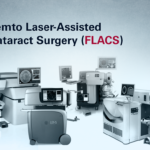
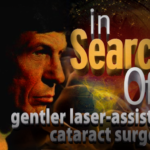
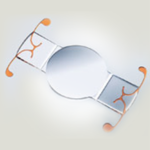


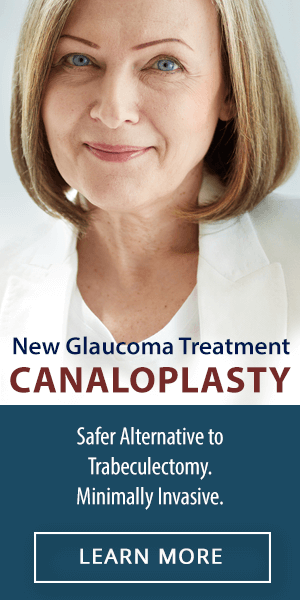
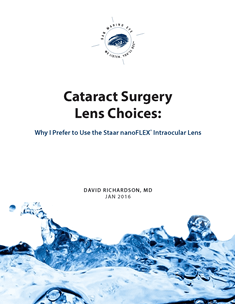
Be interesting to see Baylor’s conclusions after their study is completed.
https://www.bcm.edu/news/eye/study-laser-improve-cataract-surgery